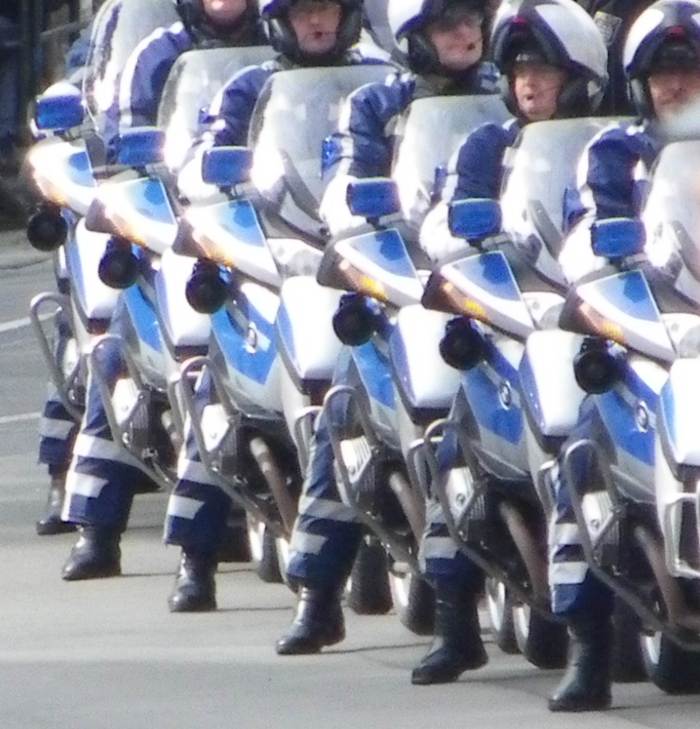
Before we get into this topic, I would like to introduce you to this clip of a stunning upset of Georgia Tech against Florida State in American football. Have a look at the clip and come up with some sentences using past tense.
While you are writing some sentences our topic for the use of time markers is solely American football. The sport was introduced in 1869 through a football game between two Ivy League colleges: Rutgers and Princeton. The game consisted of a round ball, two goal posts with an end zone each and lots of tackling. But most importantly, the rules introduced by William Leggett but later modernized by another Ivy League student, Walter Camp, would eventually be integrated into the rules used in today’s sport. The first professional league was created in 1892, yet the National Football League came into being in 1920 and counting the merger with the American Football League in 1969, is one of the oldest leagues in the world, with 32 professional teams and one of the most watched sporting events in the world, the Super Bowl. College football in America is just as popular as the NFL due to its income coming from sponsors, promotions and through college football games, including all the bowl games- most notably: The Rose Bowl, Sugar Bowl, Citrus Bowl, etc. It also features the college marching band, which provides their home team with a round of support.

Some of you may have taken the easy route and written the following down:
The kicker tried to kick the ball
The defender blocked the ball
Another defender picked up the ball
That defender ran it in for the touchdown
Georgia Tech won the game.
Some may have been more artistic in their sentence construction and wrote something similar to the following:
As the kicker was kicking the ball, it was blocked by the defender.
While the ball was rolling along, another defender picked it up. He was running towards the end zone when the players from Florida State tried to tackle him.
At the end of the game, the crowd was celebrating Georgia Tech’s victory.
This is where the grammar aspect comes in. The more artistic a sentence in English is, the more you can find some spots in grammar that warrant explanation. In this case, we have the words: as, while, when and a certain specified time, plus the verb forms of was + verb with –ing.
Source: SteelCityHobbies, taken in 2006 for flickr and wikiCommons
And this is our topic today: Time Markers involving Past Continuous Form.
Past continuous functions in a similar way as with present continuous, using the “to be” form plus the verb with the –ing ending on it. The continuous functions in a way that it describes what the person is/was doing in a time frame. The difference between present continuous and past continuous is the following:
Present continuous:
| Verb construction: | Is/are + verb-ing => is watching; are doing |
| Use: | Activities that happen now/ at this moment
Future tense in connection with (short-term) planning
|
Past continuous:
| Verb construction: | Was/were + verb-ing => was driving; were walking |
| Use: | Activities that happened during a certain time frame before or after a an event in the past tense that was finished.
Examples: 1. I was watching TV when you called. 2. When you called, I was watching TV
3. While I was waiting for the train, my girlfriend called. 4. At this time last night, I was driving home. 5. As I was backing out, the driver hit me from behind. |
The third difference between the present and past continuous forms are the time markers. There, when looking at the list below, one can see that there are more time markers in the former than in the latter, whereas the in the latter, the time markers there are used exclusively, while they are rare to use in the former.
Time markers:
| Present continuous | Past continuous |
| (right) now, currently, at the moment, momentarily, these days, nowadays, at present/ at the present time/ presently, today, while, this (week, month, year), in this era/period… | While, when (as a dependent clause), as, during the time…., This time/period, certain specified time: last week, a couple days ago, on 23rd December, at 9:30 last night, etc. |
One can also say that some of the elements in past continuous can also be used for past tense, yet one needs to pay attention to the context. That means normally, past tense is the primary verb tense used for sentences, whereas the past continuous is a supplement to the main sentence. Therefore it is normal to see a past continuous being used when the time markers of while, when, as and during are used, as seen in examples in the table above. They normally do not stand out alone unless a certain time period is used and serves as a “substitute” to the past simple verb tense.
Examples:
I was walking to the grocery store last night. – Past Continuous
I walked to the grocery store last night. – Past Simple
I was walking to the grocery store last night when I heard a strange noise.- Possible
I walked to the grocery store last night when I heard a strange noise.- Not possible
When I saw the person breaking into the store, I called the police.- Possible
While I saw the person breaking into the store, I called the police.- Not possible

Exercise A: The Choice- Look at the sentences below and determine which highlighted part of each sentence is past simple or past continuous. Identify the time markers in each sentence.
- Last night, our football team lost in the playoffs finals, and the crowd was heartbroken.
- It happened when the quarterback was trying to throw the ball and it was intercepted.
- The wide receiver was wide open as the quarterback was throwing the ball to him.
- The linebacker, who was being blocked by an offensive lineman, suddenly reached up to tip the ball.
- While the ball was bobbling in the air, another linebacker saw it and reached up to grab it.
- After he caught the ball, he landed on the ground and started running.
- As he was running towards the end zone, several offensive players of the opposing team tried to stop him.
- When he saw an opening, he quickly broke free.
- While he was running towards the end zone, the noise of the crowd got louder, as the fans were cheering for him.
- He suddenly reached the end zone and scored, as the finals seconds ticked to zero.
- After he scored, he collapsed and the other players ran towards him.
- During that time, he was trying to gasp for air because he ran so hard and so fast despite his weight.
- My team started crying because we were leading by one point with four seconds left on the clock.
- The fans of the winning team was racing onto the field as time ran out.
- I still cannot forget the game today, because we were so close to winning but we were facing frontal winds during the whole game.
Exercise B: Unscramble- Unscramble the following words and form a complete sentence using the correct verb tense (past continuous/present continuous/past simple). HINT: Identify the subject, verb and time marker first before proceeding with the sentence construction!
| Marshall | game | go | between | tonight | football | Jackson | we | to | and | the | homecoming |
| win | of | November | last | in | Marshall | last | game | the | year |
| snow | fans | freeze | whole | players | it | the (2x) | game | during | and (2x) |
| lead | by 3 points | Jackson | when | take over | Marshall | in the last minute |
| running back | wide opening | end zone | on the first play | find | ball | into | run | the (2x) | into |
| the (2x) | problems | have | slippery | Jackson | both | football | Marshall | with | during the game |
| players | slide | field | go on | the (3x) | as | around | even | game |
| players | look forward | game | fans | the (3x) | to | and | this year |
| Saturday | the | take place | warm | afternoon | on | in | game | weather | sunny |
- (!): Two sentence construction: Bold printed words are for the first half of the sentence. Please unscramble those in the top row first before unscrambling the bottom half that is for the second half!
| sloppy | win | last year | Marshall | the | sloppy | after | game |
| Jackson | to | this | look | game | forward | win |
Exercise C: Fill-in
Using the verb in parentheses, complete each sentence using either the past simple or past continuous. !: Please pay attention to the time markers in each sentence. HINT: Identify them first before completing the sentence.
- Theo _______________ the chip dip for the party when his best friend called. (prepare)
- Clyde’s first day of football practice _____________yesterday at the high school football field. (begin)
- While I ____________ busy bringing down the quarterback, a lineman suddenly ________ into me and _________ me down. (to be/run/knock)
- After I _________ to the ground, I sprained my ankle. (fall)
- Sam ____________the best football game of his career last season, as he ___________ three touchdowns, and his team won the state championship. (play/score)
- We _______________ to meet friends at a tailgate party outside the football stadium when we ____________ a flat tire on our pick-up. (go/see)
- Because we wanted to watch the Super Bowl, we _____________ a new TV three days ago. (buy)
- While you _____________ with that damn chick over there, we _________do all the work to prepare for the party. (flirt/have to)
- Jesse ____________ with her marching band at the Rose Bowl parade yesterday. We ___________ it live on TV. (march/watch)
- A: What ________you _________ just now? (do- question form)
B: I _____________ a pizza. Glad you __________ because I need your help. (make/come)
- A: That _______ a foul call! (to be)
B: Hey! Why are you shouting at the TV?
A: Because that quarterback was hit after he _______ the ball! And the referee ____________ it! (throw/ not see)
- A: Hey coach! Why did you cut me?
B: Because you _____________the job I had asked you to do on this football team. (not do)
- As the quarterback BJ was ________________the field, quarterback Jimmy ____________ the field to replace him. (walk off/ enter)
- As Corey __________ the ball into the end zone to score, the marching band ran onto the field. (run)
- The football players _________ the coach off the field while he __________ the trophy in his arms. (carry 2x)
Exercise D:
Look at the following football videos. Can you try and construct sentences in past tense, using either past simple, past continuous or both PLUS the correct time marker. As a bonus, can you find which game winner came from a college football game? 🙂
Example 1: The Minneapolis Miracle
Example 2: The Immaculate Reception
Example 3: The Catch of the Year
Example 4: The Clutch and the Clincher
Example 5: The Big Interception
Example 6: The Lateral
Example 7: The Botch
Now that you had a chance to work with the time markers dealing with past continuous and its comparison with past simple and present continuous, the next order of business will be a quiz on American football, its history, culture and all the things many Europeans probably don’t know about. The quiz on American football can be found here. In that quiz, you can also learn more about another grammatical function in English, namely passive versus active voice. Enjoy! 🙂





















